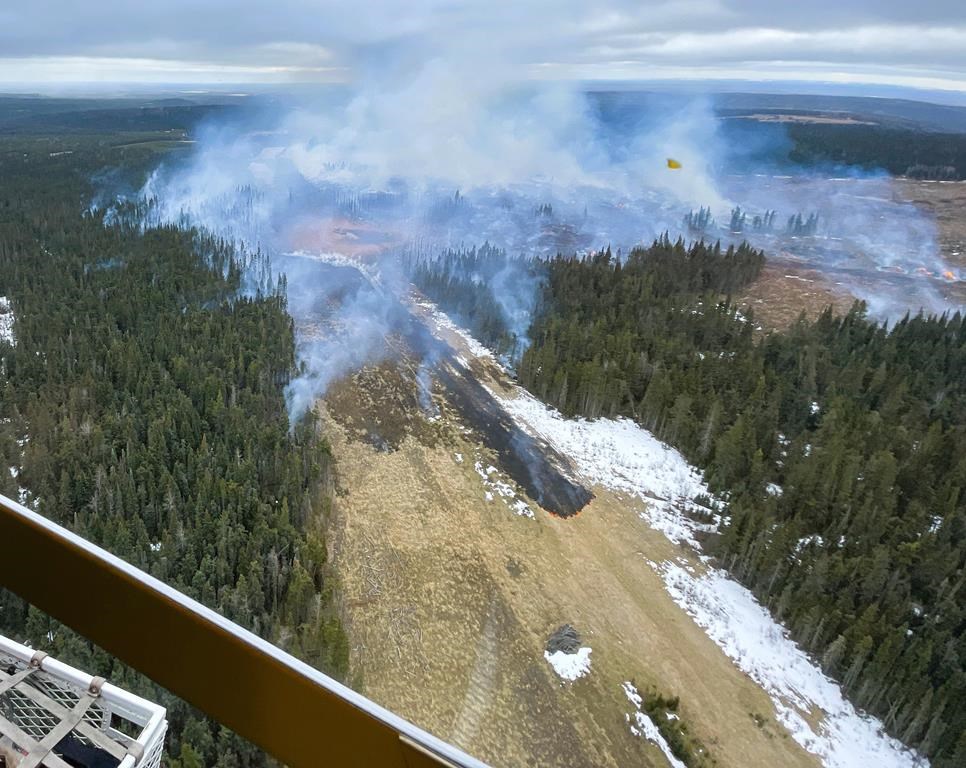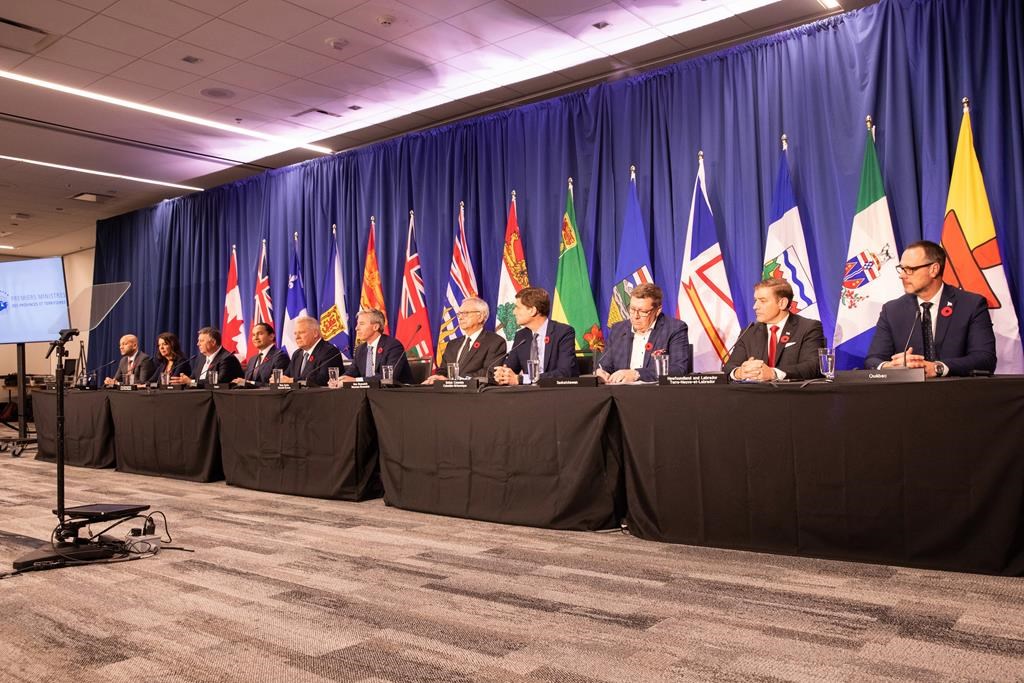Part 7: Landmark sexual abuse case a ‘beacon of hope’ for other victims
Posted October 17, 2020 9:36 am.
Last Updated October 21, 2020 10:33 am.
CAUTION: This story contains graphic content related to allegations of sexual assault and might be upsetting to some readers.
If you or someone you know are victims of sexual violence, you can contact Crisis Services Canada, a 24/7 hotline, at 1-833-456-4566 or you can find local support through the Ontario Coalition of Rape Crisis Centres; The Government of Canada has also compiled a list of sexual misconduct support centres. If you are under 18 and need help, contact the Kid’s Help Phone online or at 1-800-668-6868.
A sexual assault survivor’s Supreme Court win against the Catholic church has established an expensive deterrent against covering up abuse.
After an eight-year legal battle, Canada’s top court dismissed a request to appeal from the Basilian Fathers of Toronto earlier this year. The decision put an end to the religious order’s quest to reduce a landmark civil jury award that punished the Church for its role in facilitating abuse.
Survivor Rod MacLeod says as the years went on, his motivation never changed.
“It was about putting an end to childhood sexual abuse, especially by huge powerful rich organizations … moving the abuser from place to place, keeping them safe and allowing them to continue to do what they do,” he says.
MacLeod was sexually assaulted by Basilian priest William ‘Hod’ Marshall in the 1960s while he was a student at St. Charles Catholic High School in Sudbury, where Marshall was a teacher. The abuse occurred throughout MacLeod’s high school career.
“It was about 50 times altogether,” he says. Much of it occurred at school, and in Marshall’s gym teacher office.
“He would also catch you in the hallways, in the school and drag you into a classroom that wasn’t being used. Lock it all up,” says MacLeod. “Then he started coming to the house.”
It wasn’t until more than 50 years later, when MacLeod was in the car listening to a radio program about sexual predators, that he realized he probably wasn’t the only victim. He decided to come forward so that others would too.
At a 2012 deposition as part of a civil case against the priest, Marshall admitted to assaulting MacLeod and 16 other children. He pled guilty and was criminally convicted in 2011. He was also separately convicted of assaulting two boys in Saskatchewan.
Marshall would spend 16 months in prison for the Ontario offences. Before he died in 2014 at age 92, he voluntarily gave up his priesthood.
“What it really showed me was that evil is incredibly difficult to subdue.”
Meanwhile, MacLeod’s case continued. He says he was surprised at how vigorously the Basilians fought the civil suit, given his abuser was on tape admitting to assaulting him.
“It was so clear cut, you think, ‘Well, why are we even going to court?’” he says. “What it really showed me was that evil is incredibly difficult to subdue.”
“But if we persevere, it is possible to defeat evil.”
In 2018, an Ontario civil jury awarded MacLeod more than $2.5 million, including $500,000 in punitive damages – an unprecedented amount for Canadian cases of clergy abuse. The jury wrote the Basilians concealed Marshall’s behaviour to avoid “scandal,” were “grossly negligent” and “put children in harm’s way.”
“The punitive damages are huge because it’s an acknowledgment that they did wrong. It’s six citizens and society judging the facts and saying this isn’t just negligence, you were part of the problem,” says lawyer Rob Talach, who represented MacLeod. Talach has represented more than 400 abuse cases against the Catholic Church.
Prior to MacLeod’s victory, Talach says the largest punitive damages award in similar cases was $7,500.
When he was deposed, Marshall said whenever he was confronted about his actions, he would confess, and would often be moved to another school. He said he assaulted boys at nearly every school he worked at.
All the institutions were operated or staffed by the Catholic order of priests he belonged to, the Basilian Fathers. Along with St. Charles in Sudbury, he worked at schools in Sault Ste. Marie, Windsor, Saskatoon, and Texas. In his 36-year career, he also had multiple stints at Toronto’s St. Michael’s College School.
Though the Basilians agreed in court that MacLeod had been harmed by Marshall, they disputed the 2018 award. At Ontario’s Court of Appeal, they argued the punitive damages were excessive. After that court dismissed the appeal in fall 2019, the Basilians asked the Supreme Court to hear the case. Their request was dismissed in April 2020.
With MacLeod’s precedent firmly set, Talach predicts its effects will begin to be felt in the handling of other abuse cases.
“It makes covering up of abuse something that no one can afford,” he says. “Not even the Catholic Church, because when you start getting hit with a half-million-dollar fine here and a half-million-dollar fine there, the numbers are going to rack up pretty quick.”
With the possibility of big fines, Talach believes organizations will now be more motivated to make credible settlement offers to avoid the courts.
“It’s a beacon of hope,” he adds. “Hope that there will be change, hope that there will be prevention. Hope that there will be accountability.”
Beyond the record award, Talach says MacLeod’s case achieved another rarity for Canadian clergy abuses.
“It’s historic because it really was the first time we could get the fact pattern out into the public domain of the Church’s complicity,” Talach says. “It’s not a unique fact pattern, I see it in many cases, but we don’t always have all of the pieces.”
Marshall told lawyers that the first complaint against him was brought to the Church while he was still studying to become a priest – more than a decade before he met MacLeod. He also said that when he discussed his abuse with religious superiors, he was told to pray more.
The Basilians did not respond to a request for comment on the ruling. They also didn’t answer questions about why they appealed MacLeod’s case, declining to comment on specific priests, survivors or events. Their lawyer did forward a statement about the Basilians’ sexual abuse policy and the history of the Church’s understanding of abuse.
“There has never been any doubt or misunderstanding that sexual abuse of a child is, and always has been, wrong,” the Basilians wrote.
They went on to write there was a historical belief by professionals and the Basilians, that children wouldn’t remember sexual abuse or be impacted by it. They also say a lack of understanding of attraction to children, contributed to the thinking that sex abuse “was a moral failing, and could be addressed by deeper spiritual focus and commitment.”
The statement adds they “have adopted policies that reduce or negate opportunities for potential abuse.”
Talach says Canada’s legal system is designed to get parties to settle, to deter them from taking up court resources. That, and the burden trials put on survivors to retell their stories and submit to scrutiny, mean few civil cases ever make it to a jury.
“It was a heavy weight,” says MacLeod, “However, I tried to focus on all of the other victims who came after me. I owed them a debt, and my debt was to get this story out into the public, so that it wouldn’t keep going on.”
MacLeod, now in his 70s, would have had to pay the Basilians’ court costs if he had lost the appeals, or been awarded a smaller amount than previous settlement offers.
Still, his message to other abuse victims is to come forward.
“It was definitely the very best thing that I could have done.”








